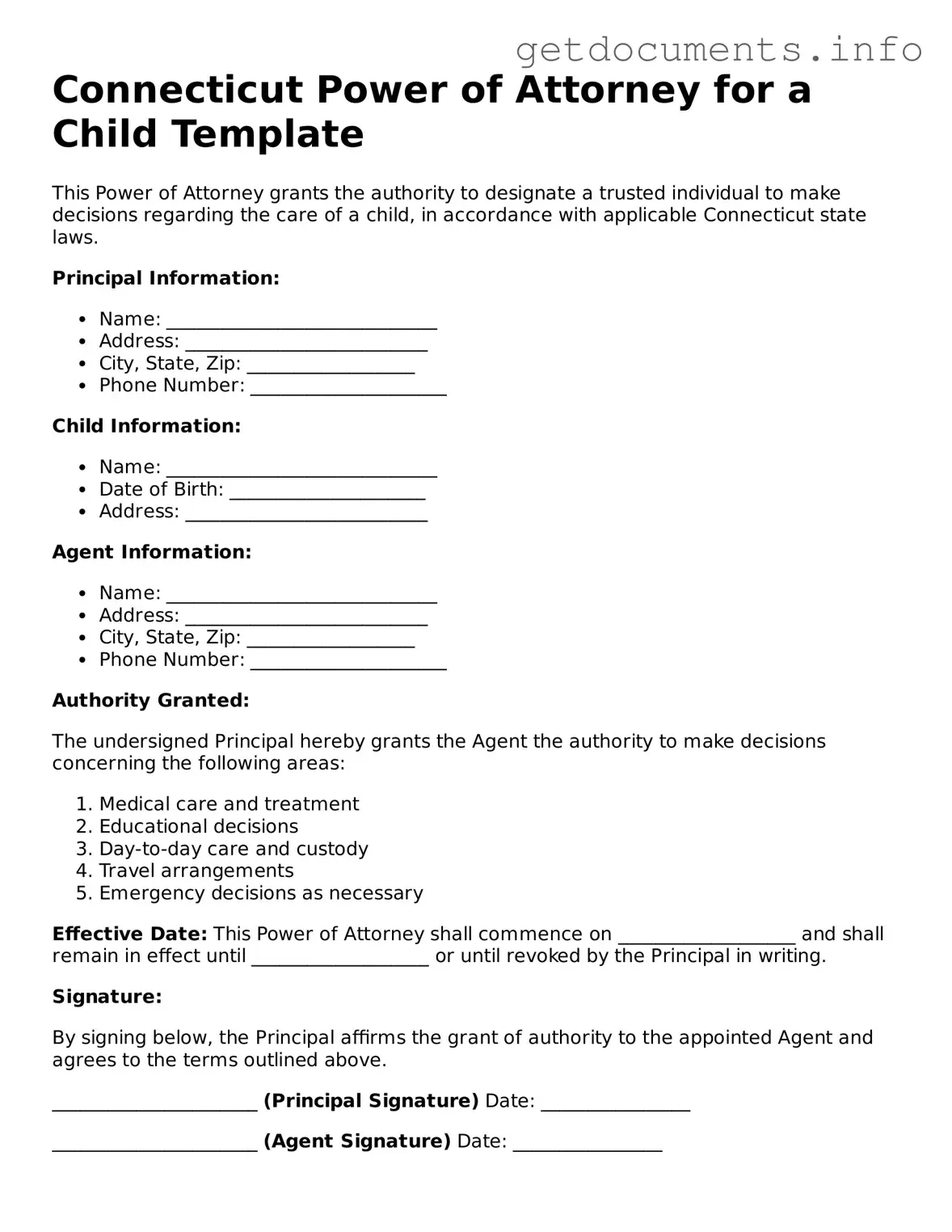Free Power of Attorney for a Child Template for Connecticut
The Connecticut Power of Attorney for a Child form is a legal document that allows a parent or guardian to designate another adult to make decisions on behalf of their child. This form is particularly useful in situations where the parent may be temporarily unavailable, such as during travel or medical emergencies. Understanding its importance can help ensure that a child's needs are met in a timely manner, so consider filling out the form by clicking the button below.
Access Power of Attorney for a Child Editor

Free Power of Attorney for a Child Template for Connecticut
Access Power of Attorney for a Child Editor
Got places to be? Complete the form fast
Fill out Power of Attorney for a Child online and avoid printing or scanning.
Access Power of Attorney for a Child Editor
or
⇩ PDF File
